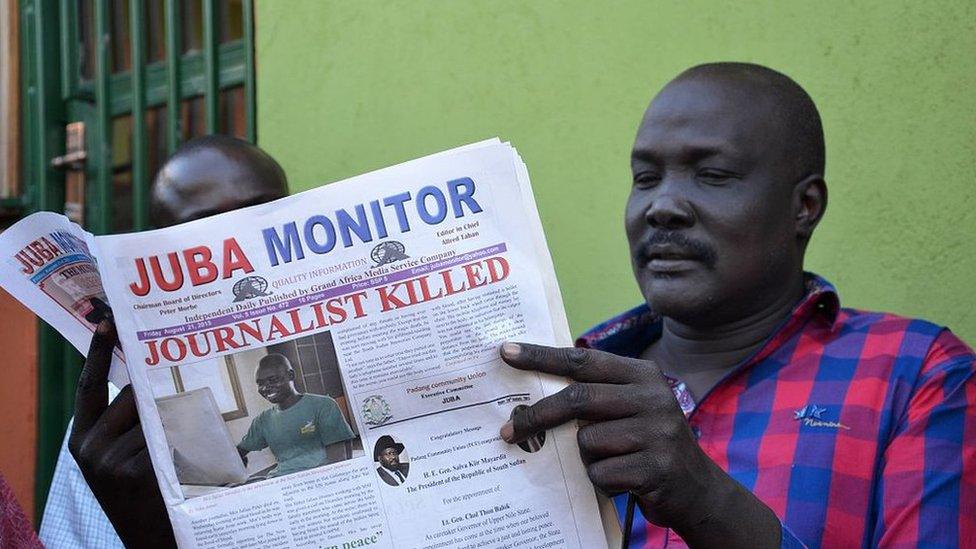South Sudan media guide
- Published
This page is no longer being updated. It was last updated on 18 April 2023

Journalists work under constant threat and intimidation in South Sudan and media freedom is precarious, says human rights NGO Reporters Without Borders (RSF).
The government has threatened and detained journalists over reports it does not like and the security services have seized print runs of newspapers. Defamation is criminalised.
There is rampant corruption, and there are atrocities against civilians, journalists, and aid workers, says US-based NGO Freedom House.
Radio is the most popular medium. Private stations, some with foreign funding, operate alongside the state-run South Sudan Broadcasting Corporation (SSBC).
The Catholic Church and Internews, a US-based media development organisation, are key players in non-state radio. BBC World Service broadcasts to Juba on 90 FM (Arabic) and 88.2 FM (English).
Though expensive for many locals, newspapers rank second to radio in popularity. Most publish in English and are printed in Uganda or Kenya.
State TV has little competition. The development of TV is hindered by poverty and a limited electricity and telecoms infrastructure.
There were 900,000 internet users by December 2021, comprising just 7.5% of the population (Internetworldstats.com). Access to online media that report opposition views has been blocked. Facebook is the most-used platform, with 436,000 users by April 2022.
Press
Juba Monitor - daily
Al-Masir (Destiny) - Arabic daily
Radio
SSBC (South Sudan Broadcasting Corporation) - state-run
Eye Radio, external - funded by US government aid body, USAID
Radio Miraya, external - operated by UN Mission in Sudan and Swiss NGO Fondation Hirondelle
Bakhita Radio, external - Catholic
Capital FM - privately-owned, from Juba
Radio Tamazuj, external - independent radio news station covering Sudan and South Sudan
Television
SSBC (South Sudan Broadcasting Corporation) - state-run
Online
South Sudan News Agency, external - US-based news site
The New Sudan Vision, external - news site